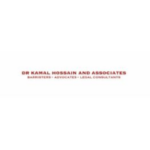-
Is your jurisdiction a common law or civil law jurisdiction?
The Kingdom of Saudi Arabia (KSA or the Kingdom) is a unique jurisdiction. The current legal framework in KSA is closer to the civil law system as many areas are governed by codified laws. The Kingdom has recently adopted specialised laws that regulate most transactions. For example, civil transactions are regulated in the Civil Transactions Law, personal status issues and inheritance are regulated in the Personal Status Law, and evidentiary rules are regulated in a specific Law of Evidence. This is in addition to well-known commercial regulations such as the Companies Law, Bankruptcy Law, and intellectual property laws. This represents a qualitative shift in the Kingdom’s legal system. These laws are compatible with Islamic Law, and in cases where the regulations do not provide a specific text, reference is made to Islamic Law. However, the provisions regulated by these laws are binding on the courts. With regard to the penal system or criminal law, it is still under study as has been officially announced.
The Kingdom enacted on 19 June 2023 the Civil Transactions Law (the Saudi Civil Code). This was issued in the official gazette “Umm Al-Qura” by Royal Decree M/191 and came into effect on 16 December 2023. The Saudi Civil Code with seven chapters and 720 articles is one of the largest legislative issuances in the Kingdom’s history. It is a significant milestone for KSA as, prior to this new Saudi Civil Code, construction and engineering contracts would have been interpreted applying Islamic Law principles.
The Saudi Civil Code has adopted provisions that are typically regulated in comparative civil laws and has largely covered provisions related to usual transactions. However, in cases where the Saudi Civil Code does not stipulate a specific provision, reference is made to custom and Islamic Law.
-
What are the key statutory/legislative obligations relevant to construction and engineering projects?
There are a range of laws within the Kingdom which govern construction and engineering projects. The laws that apply will depend on whether the employer is treated as a public or private employer.
For public works, construction and engineering projects will be primarily subject to the KSA Government Tenders and Procurement Law (GTPL), which was approved by the Saudi Arabian Council of Ministers on 16 July 2019 and came into force on 1 December 2019.
The GTPL applies to all projects by KSA government authorities, ministries, departments, public institutions and public bodies with independent corporate personality. It was initiated as part of the KSA’s Vision 2030, to increase the attractiveness of the Kingdom to international consultants and contractors, for the purposes of infrastructure development in KSA. If and to the extent that the GTPL does not address a particular subject matter, then the Saudi Civil Code would apply.
For private works, the Saudi Civil Code will apply and govern the contracts and the parties’ obligations. The Saudi Civil Code expresses the contractual principles of freedom of contract under Article 74. The parties are generally free to agree their contract terms subject to specific mandatory provisions in the Saudi Civil Code and other provisions in the law.
KSA law recognises the sanctity of contracts and parties are free to enter into contracts that impose obligations and liabilities. Article 94 of the Saudi Civil Code sets out that the terms of a contract must be enforced, unless they conflict with the mandatory provisions of the law. Under this Article, the parties are legally obligated to fulfil the rights and responsibilities contained in the contract. This principle is fundamental to the Saudi Civil Code and establishes the enforceability of the contract. This Article will therefore give comfort to the parties that the terms which are agreed should be recognised and enforced in the Kingdom.
Article 461 of the Saudi Civil Code defines a construction contract as a contract for the execution of works in exchange for a price. Articles 462 to 478 of the Saudi Civil Code deal specifically with the rights and obligations of employers, contractors and subcontractors. Other Articles of the Saudi Civil Code, which apply generally to all commercial contracts, will also apply to all construction contracts.
There are a number of standard form contracts available for international and local contractors. FIDIC contracts are widely used throughout KSA, albeit in a modified form. Contracts for public works are required to be bilingual, in the English and Arabic languages. Whilst private sector entities may draft their contracts in the English language, a certified Arabic translation needs to be provided for any submission to government entities. If a dispute arises under a contract in KSA and the forum for resolving dispute is the KSA courts, the Arabic language version of the contract will prevail as the primary version. However, if the forum for resolving disputes is arbitration and the parties have agreed that the arbitration will be conducted in English, then the English language version of the contract will prevail.
Construction and engineering projects must also comply with the Saudi Building Code (SBC), which sets out the technical, legal and administrative regulations governing the minimum construction standards that apply to any project. The implementing regulations of the SBC application law, which was enacted in December 2018 (as amended in October 2019 and August 2021), impose decennial liability on designers and contractors for a period of 10 years from the issuance of a occupancy certificate (i.e. after completion of the works). The designer and contractor are jointly liable for any total or partial collapse of a building or facility and for any defect that threatens the durability or safety of a building.
-
Are there any specific requirements that parties should be aware of in relation to: (a) Health and safety; (b) Environmental; (c) Planning; (d) Employment; and (e) Anti-corruption and bribery.
(a) health and safety;
Employers have the duty to protect employees against injuries, so should (among other things) provide employees with:
- suitable means of protection against injuries and dangers, such as fire from use of machinery, work equipment and against occupational diseases that may be contracted during work. The employer shall provide lighting, supply potable and washing water, and comply with other rules, measures and standards of occupational protection, health and safety in accordance with the Minister’s decision. The employer may not charge the workers or deduct from their wages any amounts for the provision of such protection;
- a full-time paramedic and a first aid room for more than 50 workers and, for more than 500 workers where the worksite is located at least 10 kilometres away from the nearest medical unit, an ambulance for transporting injured workers;
- social insurance through the General Organisation for Social Insurance (GOSI) which regulates insurance rights, obligations and compensation in case of injuries resulting from work. It is also applied to all workers in the private or government sectors which are covered by the Labour law that aims to provide these sectors with a financial source upon the end of their services;
- health and safety training and guidelines; a safe, appropriate working environment; and appropriate protective clothing. The employer shall post in a prominent place in the firm the instructions related to work and worker safety in Arabic and, when necessary, in any other language that the workers understand.
(b) environmental issues;
There are a body of environmental laws in KSA which underpin this sector. One of the specifications from these laws for the construction sector are Environmental Impact Assessments (EIA). They examine and evaluate a proposed project or development’s possible and probable environmental impacts, considering beneficial and adversative inter-related socio-economic, cultural and human health impacts.
They provide a framework that allows predicting environmental impacts at an initial stage in project planning and design, assessing alternatives within and to the project, obtaining extensive baseline data, systematically identifying and evaluating effects from construction, operation and closure, finding approaches to reduce adverse impacts and shaping projects to create the local built environment. Contractors seeking to carry out projects must submit an EIA and receive environmental accreditation for a project.
(c) planning;
Permits are required for any sort of construction work on site. Employers will need to ensure all permits have been obtained before beginning work on site (see Question 4 below).
- No person/company may implement construction works that permanently or temporarily change any land or property, wholly or in part, without obtaining the relevant permit.
- Construction works must be implemented as per approved plans and drawings.
(d) employment;
The Saudi Labour Law governs the employer/employee relationship as per Royal Decree No. M/51 corresponding to 27 September 2005, which entered into force on 26 April 2006 (as amended on 19 February 2025). It has been regularly updated since entering into force. From a construction and engineering perspective, some of the key employer obligations and liabilities are outlined below.
Safety
The key health and safety requirements are set out in response to Question 3(a)
A periodic evaluation of the work conditions must be processed by the employer to ensure compliance with the applicable rules and with the guidance issued by the Ministry of Human Resources and Social Development (MHRSD).
MHRSD supervises the employer’s conduct and will run inspections to ensure the adherence to the applicable rules and guidance.
Work-related injuries
The employer is liable for the medical costs and expenses associated with a work-related injury, or a work disease, until the worker’s recovery or until their disability is confirmed.
Whenever the worker is unable to report to work due a work-related injury or disease, the worker is entitled to a daily allowance for each day of their disability by 100% of the daily wage of the injured. It is reduced to 75% if the injured is under treatment at the expense of GOSI. The allowance is paid in the case of in-patient or sick leave.
If the injury leads to a total permanent disability of the KSA contributor, they are entitled to a monthly benefit of 100% of the average wage during the last three months of the month when the injury occurred.
The contributor receiving a total disability benefit is periodically examined by the competent medical board for a period of five years after the date of payment of benefit. The benefit is reconsidered on the basis of the degree of disability which is determined.
If a competent medical board decides that there is a need for the injured contributor to have the Assistant of Others allowance, they also receive it at a rate of 50% of the value of benefit, provided that it does not exceed more than SAR3,500. The contributor will be periodically examined for a period of 10 years to assess the continuing need for such an allowance. After that, it becomes permanent.
Other obligations and liabilities
The employer is responsible for the statutory employment entitlements including but not limited to timely payment of salaries via the Wage Protection System (WPS), accommodation as per MHRSD’s rules, leave, notice period, repatriation ticket, recruitment costs, any other contractual benefits and medical insurance.
From an immigration perspective, the employer must not employ any worker without having the proper work permit and visa in place, as well as follow the Saudisation rules for the sector.
(e) anti-corruption and bribery;
Anti-bribery and anti-corruption laws within KSA place a strong emphasis on “public servants” and specific private sector jobs that “must be treated as public servants”. Individuals working on government-related projects, such as consultants to government projects, including temporary contractors, experts appointed by the government or judiciary, and even employees of private companies contracted to provide public services, are included in this. This also includes the staff of joint stock companies, along with their board members and directors.
-
What permits, licences and/or other documents do parties need before starting work, during work and after completion? Are there any penalties for non-compliance?
Categories of permitted construction-related activities and their corresponding licensing requirements depend on the type of project, the height of the building and any internal directives that may be applied by the Ministry of Municipalities and Housing (MOMRAH).
Before starting work
Foreign entities seeking to work on construction projects in KSA must have a foreign investment licence from the KSA Ministry of Investment (MISA) and a commercial presence in KSA. All consultants and contractors must also obtain a classification/licence from the MOMRAH to allow them to carry out contracting work or engineering.
Before or during the works
Various permits are required to carry out the works, including permits for civil works, an environmental permit, a permit regarding roads and transport ways, an approval of the plan for disposal of hazardous waste, and permits from the relevant government entities for utilities (including water, electricity and sewage, and telecommunications).
During the works, various inspections will need to be carried out and signed off by the MOMRAH.
On completion
The contractor requests and receives final inspection from a range of local authorities within the governate of the building. Once all local authorities have provided sign-off, the building is permitted to be utilised.
-
Is tort law or a law of extra-contractual obligations recognised in your jurisdiction?
The Saudi Civil Code encompasses principles that address harm or damage caused to another person, which can be considered analogous to tortious actions. There is a general principle that an individual who causes harm to another is required to provide compensation for that harm. This can include harm to a person’s property, physical wellbeing, honour or financial interests (See Question 18 below).
-
Who are the typical parties involved in a construction and engineering project?
Developers may be one of the following:
- commercial and leisure real estate developers (many of which are wholly or partly government-owned);
- entities such as MOMRAH and the Public Investment Fund and its development arm subsidiaries (PIF);
- project companies set-up by sponsors to develop a specific project financed by limited-recourse financing. Where projects are developed on a PPP model, government entities are increasingly seeking a minority stake in the project company; or
- oil and gas companies (including an entity with significant government ownership such as Saudi Aramco).
Consultants:
Consultants are typically engaged to provide a variety of services including the following:
- architecture and engineering;
- project supervision;
- project management; and
- cost consultancy/quantity surveying.
Main Contractors:
- Main contractors in the KSA are often joint ventures, particularly in the case of “mega” projects where it is almost impossible or impracticable for a single contracting entity to carry out the whole project. Recognising the importance of local and international experience, it is common for local and international contractors and consultants to form a consortium to bid and undertake projects together.
- It is also common for special purpose vehicles (SPVs) to be set up for large-scale projects in the KSA to ensure effective risk management. These SPVs generally take the form of a limited liability company specifically created for the project between a local contractor, an international contractor and, for example, a facilities management contractor.
- Smaller projects can be undertaken by a single contractor, which may be a local contractor or a locally established entity of an international contractor. Any international contractor that is engaged to undertake a project in the KSA must establish a local presence or branch office.
Subcontractors:
- The main contractor will often subcontract parts of the works to specialist subcontractors and, in many cases, will be required to accept subcontractors that have been nominated by the employer (see Question 11 below).
Engineer/Architects:
- Engineers play a key role on most projects but standard form contracts tend to be amended so that the Engineer requires the employer’s approval for many important decisions.
- Architects of Record are often appointed to take ultimate responsibility for the project and deal with (and be named on) the licences and permits.
-
What are the most popular methods of procurement?
Under the most commonly used procurement and contractual arrangements (involving both local and international parties), the employer engages its own design, supervision and project management consultants and separately procures a contractor to construct the project according to that design. This procurement model is typically known as the traditional model or general contracting and is the prevalent model used in KSA.
Alternatively, particularly large-scale projects are often procured on a design and build basis, so that the contractor is also responsible for design of some or all of the works to meet requirements specified by the employer; or on an EPC/turnkey basis, so that the contractor is responsible for the engineering, procurement and construction of a ready-to-use asset capable of achieving specified outputs and performance criteria. In each of these cases, the contractor may carry out the design and engineering in-house or by engaging external consultants.
-
What are the most popular standard forms of contract? Do parties commonly amend these standard forms?
The most common construction contracts used in KSA are the FIDIC suite of contracts.
The FIDIC Red Book is the most common form of FIDIC used in KSA. Many large developers and owners have their own forms of contract, but these often are amended to varying degrees. The 1999 FIDIC suite of contract remains the most popular base for procuring new projects. The 2017 FIDIC suite has not achieved widespread adoption. NEC 3/NEC 4 is not used in KSA despite gaining popularity by public sector clients in the United Kingdom and other countries.
It is common in the KSA for FIDIC contracts to be amended to be much more heavily in favour of the employer. Such re-allocations of risk can be extensive. The role of the Engineer under the FIDIC Red Book form is often circumscribed, requiring the Engineer to seek the employer’s approval for many important decisions that the Engineer makes under the contract.
Contracts based on the FIDIC Yellow Book are also used for design and build projects and those based on the FIDIC Silver Book are used for EPC contracts, while the other FIDIC forms are also used in relevant circumstances.
Bespoke contracts are increasingly common for mega projects and have always been popular for EPC contracts, particularly utility and industrial projects, or those involving project finance.
-
Are there any restrictions or legislative regimes affecting procurement?
Construction contracts are subject to the Saudi Civil Code and government procurements are governed by GTPL and its executive regulation. There are specific provisions in the Saudi Civil Code that apply to construction contracts. Some of these requirements are addressed in this edition.
GTPL is administered by the Ministry of Finance. The Unified Procurement Agency (UPA), a government organisation, is in charge of the nation’s unified strategic procurement, according to the public procurement system. An agreement between government agencies, or between government agencies and commercial vendors, is known as a government contract. GTPL is facilitated by an electronic auction system that allows offering bids and selecting the lowest bid.
-
Do parties typically engage consultants? What forms are used?
Consultants and construction professionals are typically engaged by the employer, particularly on larger projects. They are generally selected through a competitive tender process. On smaller local projects, employers may appoint construction professionals from a pre-qualified list or those with which they have an existing relationship.
Construction professionals are usually appointed under conventional professional services contracts. The FIDIC White Book (Client/Consultant Model Services Agreement) is widely, but not invariably, used as the base document, often with supplementary additional conditions.
It is common for construction professionals’ contracts to include:
- provisions imposing the familiar standard of “reasonable professional skill and care”, but some employers consider imposing a fitness for purpose obligation if a design consultant is preparing detailed or ‘issued for construction’ design; and
- requirements to maintain Professional Indemnity Insurance (with limits on liability usually reflecting the insurance coverage).
-
Is subcontracting permitted?
Subcontracting is permitted, unless it is restricted or not permitted in the main contract. However, government contracts generally require the approval of the government entity for the appointment of subcontractors. Given the scale of the projects and the specialist works required, subcontracting is very common, particularly in relation to specialist fields such as design/engineering, enabling and foundation works, mechanical, electrical and plumbing works, façade works and any specialist systems required for the project.
Article 473 of the Saudi Civil Code expressly permits contractors to subcontract work to subcontractors provided the contractor remains responsible for the work.
“Nominated subcontractors” are common in the KSA, where the employer selects the subcontractor and requires the main contractor to appoint that particular subcontractor for the specified work. Moreover, it is allowed to conclude subcontracts to execute works and procurements that exceed 30% of the contract amount and less than 50% of the contract amount, subject to the prior consent of the CSE and the government authority, and provided that such works and procurements are assigned to more than one subcontractor.
-
How are projects typically financed?
Historically, government projects in the KSA have been self-financed, and recent budget announcements confirm a continued investment in infrastructure and construction projects.
PIF has a world-class investment portfolio with a focus on sustainable investments, both domestically and internationally. PIF maintains a leading and impactful investment strategy in line with Vision 2030, to drive KSA’s economic transformation through active, long-term investments and high standards of governance and transparency.
Privately funded projects (other than PPP-style projects) most commonly involve real estate or tourism development projects, which are financed by lenders on a corporate or full recourse basis. In some cases, Islamic finance structures are established which provide further alternative financing options.
-
What kind of security is available for employers, e.g. performance bonds, advance payment bonds, parent company guarantees? How long are these typically held for?
Where the contracting entity is a subsidiary or special purpose vehicle, the employer will often require a parent company guarantee from the ultimate parent entity (or entities) to secure the performance of the contractor’s obligations and protect the employer against the consequences of insolvency of the subsidiary company.
The following types of bonds are common in the KSA:
- Bid bond: Tenderers are required to submit a bid bond of between 1% and 2% of the value of the bid. Bids submitted without a bid bond shall be rejected. However, the New GTPL excludes the requirement for a bid bond for direct purchases, competitions, contracts concluded between government entities, contracts concluded with a civil institution, association or non-profit entity, and contracts concluded with local SMEs.
- Performance bond: This is generally held from the commencement of the contract until taking over or the end of the Defects Liability Period. Unconditional on-demand bonds are almost always used which means that the employer can liquidate the bond “on demand”, rather than needing to demonstrate any failure in performance by the contractor. Under GTPL and its Implementing Regulations, the minimum amount of performance bond is 5% of the contract price although 10% is market standard in KSA. However, performance bonds will not be required for direct purchases, government-to-government contracts, not-for-profit contracts or SME contracts. In addition, performance bonds will not be required for works valued at under SAR100,000.
- Retention or retention bonds: Typically, employers tend to retain a percentage of each progress payment as “retention” (see Question 16 below). Sometimes the employer will agree to an on-demand retention bond in lieu of a retention.
- Advance payment bond: It is common for employers to make an advance payment to help finance the works, in exchange for an on-demand bond. The advance payment will then typically be deducted through the monthly certified payments, with the bond being correspondingly reduced in value. Advance payments can be made as long as a performance bond is lodged. The Implementing Regulations for GTPL impose an advance payment limit of 10% of the total value of the contract.
-
Is there any specific legislation relating to payment in the industry?
The general presumption that payment is due upon completion of the relevant works. The GTPL and associated laws set out default payment obligations applicable to lump sum and measurable contracts, where the parties have failed to specify the basis of remuneration in the contract. However, these provisions are rarely referred to because the parties are free to, and almost invariably do, agree specific payment terms in their contracts which will generally be enforced in accordance with their terms under the Saudi Civil Code. Further, Articles 469 and 472 of the Saudi Civil Code impose an obligation on employers to pay for work executed by contractors.
-
Are pay-when-paid clauses (i.e clauses permitting payment to be made by a contractor only when it has been paid by the employer) permitted? Are they commonly used?
There is nothing in KSA law that prohibits or restricts the use of pay-if/when-paid clauses. The use of pay-if/when-paid clauses is very common as main contractors seek to pass certification and payment risks down to subcontractors. This is seen as an important protection for main contractors, particularly where they are being required to subcontract to nominated subcontractors that have been selected by the employer and with whom they may not be familiar or comfortable. Subcontractors will often seek to include similar provisions with their own subcontractors and suppliers depending on the bargaining positions of those involved.
KSA courts will generally uphold conditional payment terms if they are clearly drafted in the contract and in accordance with the Saudi Civil Code, such as good faith or manifestly unfair terms.
-
Do your contracts contain retention provisions and, if so, how do they operate?
It is common practice in the region for construction contracts to contain retention provisions. These will typically involve a percentage of each progress payment being retained by the employer, which is then commonly released in two tranches with the first tranche released upon completion of the works and the second released following issuance of the defects liability certificate.
A total retention of 10% of the contract price is common. However, this may vary (occasionally significantly) depending on the nature of the project and respective bargaining power of the parties. In particular, highly technical projects such as energy or rail frequently provide for a higher sum to be retained in relation to the functional performance of the works (for example, in relation to Key Performance Indicators or performance-related damages). In order to facilitate cash flow, the employer will often agree, either at the outset or during the course of a project, to allow the contractor to provide an on-demand retention bond in lieu of withholding a retention.
-
Do contracts commonly contain liquidated delay damages provisions and are these upheld by the courts?
Liquidated damages clauses are generally enforceable under Saudi Civil Code and will be upheld by the courts to the extent they reflect actual loss. They are standard in construction contracts. Any pre-determined compensation remains subject to adjustment by the courts and being measurable, without any uncertainty or unjust enrichment as per the principles in the Saudi Civil Code. Any damages provisions for government contracts are determined by the GTPL.
As explained above, the concepts of general damages and liquidated damages are recognised in the Saudi Civil Code. Monetary compensation for breach of contract is generally determined by a court or tribunal if no pre-determined amount is specified in the contract or in the law. This is recognised in Article 180 of the Saudi Civil Code.
Under Articles 136 to 138, general damages are permitted and recoverable for breach of contract claims. A party may recover loss of profit and moral damages provided that they arise from a natural consequence of a party’s failure or delay to perform a contractual obligation and could not be prevented if the non-defaulted party exerted reasonable efforts.
Article 178 of the Saudi Civil Code states that parties may agree and fix compensation in advance and specify this in the contract. The Saudi Civil Code recognises liquidated damages as a legal concept.
Under Article 179 of the Saudi Civil Code, a court or tribunal may (at the request of the debtor being the paying party):
- reduce the liquidated damages to “nil” if it can be established by the debtor that the creditor has suffered no loss;
- reduce the liquidated damages if the amount of the liquidated damages has been exaggerated or the obligation to which liquidated damages apply has been fully or partially performed; or
- increase the liquidated damages if the actual loss suffered exceed the amount of liquidated damages because of fraud or gross negligence of the debtor.
This is a mandatory right and cannot be excluded by the parties regardless of the terms of their contract. Therefore, regardless of the terms of the contract, Article 179 will apply and may be used to challenge the liquidated damages provision in the contract depending on the specific facts and circumstances.
-
Are the parties able to exclude or limit liability?
The Saudi Civil Code, like many legal systems, generally allows parties to contractually agree to exclude or limit their liability. These exclusions or limitations of liability are subject to certain limitations and conditions to ensure fairness and compliance with public policy and order.
Under Article 173(1) of the Saudi Civil Code, a party may limit its liability arising from its failure or delay in performing its contractual obligation. However, a party is unable to limit or exclude its liability for fraud, gross negligence or a harmful act.
Under Article 174 of the Saudi Civil Code, a party may agree that force majeure is borne by the other contracting party.
Therefore, provisions in a contract that limit or exclude liability should generally be recognised in KSA and be enforced. However, limitation and exclusion of liability clauses should be carefully drafted to ensure that they comply with the Saudi Civil Code to avoid such clauses being held unenforceable due to uncertainty.
-
Are there any restrictions on termination? Can parties terminate for convenience? Force majeure?
Termination of a construction contract under KSA law involves nuanced issues that need to be considered carefully on a case-by-case basis in light of the specific contractual terms and the factual circumstances involved.
KSA courts recognise that the contract can obtain suspension of performance for the duration of the force majeure event or terminate when performance becomes impossible without exposing the terminating party to an award of damages.
In the case of public works contracts, Article No. 144 of the Executive Regulation of GTPL permits a contracting party to a government contract to seek to delay their performance under the contract for a period that is proportionate to the period of delay caused by the force majeure event. The contractor will also need to prove that the delay has been caused by the “emergency circumstances” or “reasons beyond his control”, as a matter of fact.
Under the Saudi Civil Code, a party cannot unilaterally terminate a contract by convenience unless expressly stated in the contract.
Article 476 of the Saudi Civil Code allows either party in a construction contract to request the termination of the contract if an urgent issue arises that impacts the affected party’s ability to fulfil the contract’s obligations. If the contract is terminated for this reason, the party that initiates the termination must compensate the other party for any losses or damages they suffer as a result of the termination.
As a general provision of termination under Article 107 of the Saudi Civil Code, if a party fails to fulfil their obligations, a party can demand performance or termination of the contract, along with compensation for damages. The court may reject a termination request if the breach is minor in nature.
In Article 108 of the Saudi Civil Code, a party to a contract may have the contractual right to terminate the agreement unilaterally in the event of the other party’s breach of obligations. This right of unilateral termination is contingent upon the non-breaching party providing notice to the breaching party of their intention to terminate the contract. The requirement to give notice, however, can be waived if the parties have explicitly agreed to such a waiver within the contract. This provision allows for a more expedited and direct means of resolving a breach of contract without the immediate need for judicial intervention, provided that the contract includes the right to termination and all contractual stipulations are followed. Therefore, the termination clauses need to be carefully drafted to comply with this Article.
-
What rights are commonly granted to third parties (e.g. funders, purchasers, renters) and, if so, how is this achieved?
Security typically taken by lenders in the KSA does not differ significantly from the norm in other local jurisdictions. It is likely to include one or more of the following:
- security over assets of the project company, including plant and machinery, bank accounts and contractual rights. This has become easier with the KSA commercial pledge law, which allows for greater flexibility over the assets that can be secured, including future assets; or
- a legal mortgage over the land or site, whereby the title to the property would remain with the mortgagor and the mortgagee would obtain a registered mortgage. The mortgagor and mortgagee may agree in the mortgage agreement that the receivables from the mortgage property will be used to pay in accordance with the amortisation schedule of the debt and to service any other fees, charges and profits. A lease of more than five years will not be enforceable if the property has been mortgaged. Moreover, a property may have more than one mortgagee, allowing for the creation of a succession of mortgages (e.g. first mortgage, second mortgage, and so on).
In more complex projects, there are collateral warranties. They create a direct contractual relationship between a contractor and a funding institution, whereby the contractor undertakes to the funder to comply with the construction contract.
-
Do contracts typically contain strict provisions governing notification of claims for additional time and money which act as conditions precedent to bringing claims? Does your jurisdiction recognise such notices as conditions precedent?
It is common for construction contracts in the KSA to include notice requirements which purport to operate as a condition precedent to an entitlement to an extension of time, or for an amendment to the contract price, or additional payment.
As a general principle under the Saudi Civil Code, parties are free to agree any terms in a commercial agreement provided they do not contravene a mandatory provision of Islamic Law principles or law. Accordingly, the starting point is that clauses containing conditions precedent to additional time or payment should, in principle, be upheld as a condition precedent if the clause sets out sufficiently clearly the specific timing and requirements in respect of the delivery of notice and specifies that the associated rights will be lost in the event that the required notice is not given.
However, parties seeking to avoid the strict application of a condition precedent provision will often raise a number of issues under KSA law, including as to the proper interpretation and application of the notice provisions, whether there has been a waiver (either express or implied) of the condition precedent, whether the party relying on the condition precedent has failed to perform its obligations in good faith in accordance with the requirements of Article 98/3 from the Executive Regulation of GTPL. Courts typically uphold such conditions, but in certain limited cases, they may not do so. For instance, article 179 of civil transaction law states that if the parties agreed on compensation but no harm was sustained, or if the agreed-upon compensation is deemed excessive, the court might reduce it. Conversely, if the harm exceeds the agreed compensation, the court may increase it. In all instances, a petition from either party is necessary.
Generally, courts respect the agreements made between parties and intervene only in very limited circumstances, as specified by certain legal provisions that grant them such authority
The Saudi Civil Code recognises prescription periods for different types of claims. According to Article 295 of the Saudi Civil Code, the general prescription term in civil matters is 10 years from the day on which the right is due.
Article 305 of the Saudi Civil Code states that parties cannot contractually agree to alter (either shorten or lengthen) the prescribed prescription period within which legal action must be taken to enforce rights.
-
What insurances are the parties required to hold? And how long for?
The contractors will generally be required, as a minimum, to maintain Employer’s Liability Insurance, Public Liability Insurance and Health Insurance for employees.
Contractors are generally required to maintain insurance for all construction risks, employer’s liability insurance and third party liability insurance while operating in KSA. This area is updated regularly and the stakeholders will be informed.
-
How are construction and engineering disputes typically resolved in your jurisdiction (e.g. arbitration, litigation, adjudication)? What alternatives are available?
Arbitration: The Arbitration Law is largely based on the UNCITRAL Model Law, and governs arbitral procedures held in KSA. Parties are generally permitted to choose the governing law of contracts (certain limitations or prior approvals would, however, apply to contracts with KSA government bodies).1 The Saudi Centre for Commercial Arbitration (SCCA) has well established institutional rules for resolution of disputes.
Committee of Bidder/Contractor Dispute: Based on Article No. 86 of GTPL, the bidder is to first raise a grievance with the government entity during the suspension period if the grievance relates to the selection, or within five days from the decision which is the subject of the complaint. The government entity must reach a decision on the grievance within 15 days.
Committee for Contractor Violations: Based on Article No. 88 of GTPL, the Committee for Contractor Violations hears complaints against bidders or contractors relating to contractual violations or breaches of the law. It may prohibit dealing with government entities for up to five years or impose a financial penalty of up to 10% value of the contract/proposal, and/or reduction in contractor status. The bidder/contractor may appeal against Article No. 88 GTPL decisions at the Administrative Courts.
Footnote(s):
1 Requires permission of the Minister of Finance and must be expressly included in the contract. Furthermore, Saudi law must be followed in any arbitration allowed for contracts worth more than SAR100 million. Contracts involving non-Saudi entities are the only ones that may be arbitrated in international arbitration centres.
-
How supportive are the local courts of arbitration (domestic and international)? How long does it typically take to enforce an award?
In relation to domestic awards, under the Enforcement Law of 2013, an arbitral award, to which an enforcement order is appended, is considered a writ of enforcement, allowing the award creditor to seek compulsory enforcement proceedings. Furthermore, in relation to foreign awards, KSA is a signatory to the New York Convention on the Recognition and Enforcement of Foreign Arbitral Awards 1958. KSA courts are therefore required to give effect to private arbitration agreements and the recognition and enforcement of arbitral awards made in other contracting states.
-
Are there any limitation periods for commencing disputes in your jurisdiction?
Currently, there are three legal frameworks that prescribe limitation periods after which claims will not be heard: 1) The Saudi Civil Code, which contains several provisions setting limitation periods, with a general rule of ten years, 2) The Commercial Courts Law, which sets a five-year limitation period, and 3) The Law of Pleadings before the Board of Grievances, which also includes specific limitation periods. These laws establish time limits beyond which a court will not hear the claim, even if the underlying right still exist.
-
How common are multi-party disputes? How is liability apportioned between multiple defendants? Does your jurisdiction recognise net contribution clauses (which limit the liability of a defaulting party to a “fair and reasonable” proportion of the innocent party’s losses), and are these commonly used?
Given the complexity and number of parties involved in some of the large construction projects in the KSA, it is common for disputes to arise that involve multiple parties. Many of the institutional arbitration rules allow for the consolidation of disputes under different contracts between the same parties where certain conditions are met. Occasionally, the underlying arbitration agreements also allow the consolidation of disputes between different parties (for example, where a main contractor is in dispute with two or more subcontractors in relation to similar issues). However, frequently a party may find itself involved in multiple arbitrations (either sequentially or concurrently) in relation to the same project. For example, main contractors may be involved in separate arbitrations against the employer and subcontractors involving similar issues.
-
What are the biggest challenges and opportunities facing the construction sector in your jurisdiction?
Saudi Arabia’s Crown Prince Mohammed bin Salman al-Saud unveiled Vision 2030, a national agenda for economic and social reform aimed at launching a new era of investment in the KSA that would accelerate diversification, plug the housing shortage, open up tourism and expand the KSA’s manufacturing base.
For real estate developers and construction companies, many of these opportunities are emerging on the Vision’s real estate giga projects such as Neom future city, Qiddiya entertainment city, Diriyah Gate, Amaala and the Red Sea Project. While significant project contracts are already being awarded, multiple project packages of high value are in the pipeline, which will drive ahead project spending and business opportunities for many years in KSA. There will be challenges for construction materials to enter the country, leading to an increase in material prices. There will also be high demand to recruit the right people with significant experience in project management and other skill sets to help deliver these time-critical projects.
-
What types of project are currently attracting the most investment in your jurisdiction (e.g. infrastructure, power, commercial property, offshore)?
Under Vision 2030, KSA has emerged as an attractive destination for investors. KSA holds exciting potential and opportunity for investors. KSA Crown Prince Mohammed bin Salman announced KSA would invest more than SAR500 billion in infrastructure, including airports and seaports, by the end of the decade in a bid to become a transport and logistics hub under an economic diversification plan.
As part of Vision 2030, a wide range of economic reforms has succeeded in creating new business opportunities, leveraging KSA’s key strategic assets and driving economic growth, diversification and supporting the Kingdom’s economic transformation efforts. KSA announced the Giga Projects Programme e.g. NEOM, Diriyah, Qiddiya, Roshn, New Murabba etc. which consider the core component of Vision 2030.
The Giga Projects themselves are split between being directly owned and financed by Public Investment Fund from its own US$500 billion worth of assets, and those owned and funded by the government through public entities.
KSA is hosting the Asian Winter Games in 2029, World Expo in 2030, and World Cup in 2034. These projects must be delivered on time and are the key areas of focus in KSA in the short to medium term.
-
How do you envisage technology affecting the construction and engineering industry in your jurisdiction over the next five years?
In order to improve efficiency across all project-related activities, from planning to delivery, both developers and contractors are increasingly looking for methods to benefit from digitisation.
Digital transformation refers to the full spectrum of technologies companies employ to improve processes and deliver better customer outcomes, including AI, ML, IoT and cloud computing.
We expect to see a significant increase in the use of Building Information Modelling (BIM), coupled with the use of augmented reality technology applications to assist in translating and utilising BIM models on the ground on construction sites. We expect BIM to be used to build a FIFA-compliant stadium for the World Cup in 2034.
Digitalisation refers to embedding digital technologies to improve business processes. For example, in the construction industry, IoT can simplify the procurement, distribution and tracking of goods and services.
The intelligent solutions will improve efficiency in construction, ensuring time savings and cost reductions.
KSA’s strategy is going digital and encompasses deploying connected construction technologies across the value chain. This includes integrating assets, people and processes into a single intelligent and secure platform to improve operational efficiencies and transparency.
-
What do you anticipate to be the impact from ongoing supply chain issues and the escalation of material costs over the coming year?
We expect projects to face continued challenges arising from inflationary price increase or escalation, supply chain disruption, liquidity issues and constraints in accessing sufficient plant and manpower which have arisen from the large number of mega projects being delivered simultaneously. The impact of any increase in global trade tariffs on the cost of materials need to be carefully considered.
Saudi Arabia: Construction
This country-specific Q&A provides an overview of Construction laws and regulations applicable in Saudi Arabia.
-
Is your jurisdiction a common law or civil law jurisdiction?
-
What are the key statutory/legislative obligations relevant to construction and engineering projects?
-
Are there any specific requirements that parties should be aware of in relation to: (a) Health and safety; (b) Environmental; (c) Planning; (d) Employment; and (e) Anti-corruption and bribery.
-
What permits, licences and/or other documents do parties need before starting work, during work and after completion? Are there any penalties for non-compliance?
-
Is tort law or a law of extra-contractual obligations recognised in your jurisdiction?
-
Who are the typical parties involved in a construction and engineering project?
-
What are the most popular methods of procurement?
-
What are the most popular standard forms of contract? Do parties commonly amend these standard forms?
-
Are there any restrictions or legislative regimes affecting procurement?
-
Do parties typically engage consultants? What forms are used?
-
Is subcontracting permitted?
-
How are projects typically financed?
-
What kind of security is available for employers, e.g. performance bonds, advance payment bonds, parent company guarantees? How long are these typically held for?
-
Is there any specific legislation relating to payment in the industry?
-
Are pay-when-paid clauses (i.e clauses permitting payment to be made by a contractor only when it has been paid by the employer) permitted? Are they commonly used?
-
Do your contracts contain retention provisions and, if so, how do they operate?
-
Do contracts commonly contain liquidated delay damages provisions and are these upheld by the courts?
-
Are the parties able to exclude or limit liability?
-
Are there any restrictions on termination? Can parties terminate for convenience? Force majeure?
-
What rights are commonly granted to third parties (e.g. funders, purchasers, renters) and, if so, how is this achieved?
-
Do contracts typically contain strict provisions governing notification of claims for additional time and money which act as conditions precedent to bringing claims? Does your jurisdiction recognise such notices as conditions precedent?
-
What insurances are the parties required to hold? And how long for?
-
How are construction and engineering disputes typically resolved in your jurisdiction (e.g. arbitration, litigation, adjudication)? What alternatives are available?
-
How supportive are the local courts of arbitration (domestic and international)? How long does it typically take to enforce an award?
-
Are there any limitation periods for commencing disputes in your jurisdiction?
-
How common are multi-party disputes? How is liability apportioned between multiple defendants? Does your jurisdiction recognise net contribution clauses (which limit the liability of a defaulting party to a “fair and reasonable” proportion of the innocent party’s losses), and are these commonly used?
-
What are the biggest challenges and opportunities facing the construction sector in your jurisdiction?
-
What types of project are currently attracting the most investment in your jurisdiction (e.g. infrastructure, power, commercial property, offshore)?
-
How do you envisage technology affecting the construction and engineering industry in your jurisdiction over the next five years?
-
What do you anticipate to be the impact from ongoing supply chain issues and the escalation of material costs over the coming year?



















